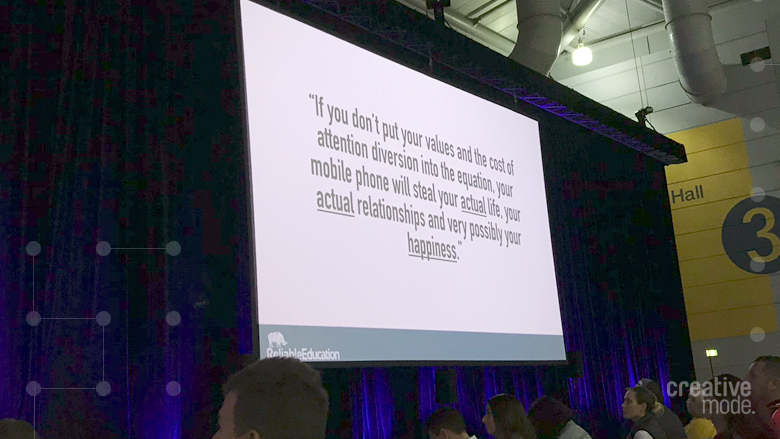If you’re thinking about getting a business website but have no idea where to start read on to find out what the basic requirements are. The topics covered below are:
Web Content & Research
Web Development
Domain Names
Web Hosting
Internet Access
Website Promotion
Site Management
Business Integration
Measures Of Success
Web Content & Research
Will you develop content or ask someone to do it for you? The most important part of a website is it’s content. Back in 2002 when Creative Mode was just starting out, the saying was ‘Content is King’ and today that is still true. What do you want to communicate? Think about the goals of your website, think about your reasons for being online and what will really interest your intended audience. If you don’t feel confident about developing your own content ask someone to do it for you and keep in mind that it may need adjustment for web delivery. We have a number of copywriters with diverse style to assist you if you need help with content.
Web Design & Development
Who will design, develop and maintain your website? Take your idea’s to someone who can provide options to design, code and then maintain your website. Ask lots of questions and ask for a quote and an estimated timeframe for completion. The possibilites are often great, but the reality is going to depend on your budget. If you have a budget, make it clear right from the start to avoid wasting time on proposals you can’t afford. Choose someone who has the skills and experience building the kind of website you want, ask to see examples and make sure you feel 110% comfortable with your choice of web developer. It’s not always easy for clients to explain something that hasn’t yet taken form. This reason alone makes a good relationship very important. Understanding your vision and turning it into reality requires a good measure of discussion and feedback to find the best solution.
A Domain Name for your Website
Your domain name is your unique web address and it’s primarily used to find your website. It is also a valuable tool for developing your brand. Here’s an example of a domain name: mycompany.com.au. There are rules governing who can register domain names and you are required to provide information about your business when you make your domain name application. The extension on the end defines the type of domain name. For example, ‘.au’ is reserved for Australian business so any domain name that ends with .au will be a registered Australian business. You don’t need to own a website to register a domain name – you can simply register your domain to reserve it for future use. This is called ‘domain parking’.
Web Hosting
Your website pages need to be stored on a computer that is connected to the internet 24 hours a day, seven days a week so that people can access them. This is the service your ‘web host’ provides and the computer that stores your pages is commonly referred to as a ‘server’. The cost of web hosting is usually based on the following: the amount of storage space your website pages will require; whether you share a server with other websites or have your own dedicated server (shared hosting is the norm for small business websites); the speed of the service; and the type of services available on the server for processing your web pages (eg. the ability to process scripts or handle database programming). If your site is extremely popular there may be extra charges based on the amount of traffic your site attracts so you would need to consider this when choosing a web hosting plan. Web hosting packages usually include some great management tools such as website statistics reporting and a control panel for setting up your own email addresses but this will vary depending on the web host you choose. There is sometimes an initial setup cost for web hosting and then ongoing fee’s are billed on a monthly or yearly basis.
Internet Access
It goes without saying that you will need a reliable internet connection to respond to any email enquiries from your website. An Internet Service Provider (ISP) primarily sells access to the world wide web. In the past this has most commonly been a ‘dial-up connection’ to the internet with a free email account attached. There are now many more options available. An ISP will often provide a variety of other services such as website hosting, domain name registration and even basic website development. There are many ISP’s to choose from and the costs will vary depending on the type of service you choose. This is a good time to start thinking about who has access to the internet within your organisation. Internet access is essential if you are going to properly service your website enquiry’s.
Website Promotion
How will you tell people about your website and encourage visitors? Here are a few common options. Add your web and email address to business cards, letterhead and any printed brochures or advertising you have in place. Talk about your website with your customers whenever you do business. Register your site with search engines and directory’s so that you can be found online. Ask for links from other sites with the same target audience as yours – this can encourage traffic to your website. If you are in an extremely competitive industry you might also consider paid online advertising options such as ‘Pay Per Click’ services. Email marketing and social media marketing can be very effective also. Your choice and the effectiveness of different marketing options will vary depending on who your target audience is, what your individual website goals are and the industry that you operate in.
Web Site Management
Websites need maintenance such as updates to keep them relevent and occasional technical maintenance that requires liason with your web host. Within the first few months especially, it is likely you will need to fine tune a few things based on the responses you are getting from visitors. Website statistics (even the basic packages provided by web hosting services) can report on information such as which pages are the most popular, how many visitors does your site attract, who provides the most referrals to your site and more. If you make changes in response to this information you can tailor your website better, to specifically meet the needs of your visitors and thereby improve the effectiveness of your website. Your options for site maintenance will depend on the technical skill available within your organisation and the services available from your web developer. If your site will require a significant amount of updating (eg. real estate listings require daily updates) you might want to invest more in the beginning to have a content management system developed. This allows staff to easily update information via an interface that be quite simple depending on the system you use. If your site is fairly basic the maintenance costs will be minimal. You really need to carefully asess your needs here.
Business Integration
I cannot count the number of times I have made an online enquiry and received either no response, or, a response a week later. Something else that happens often: I call a company about a product I’ve seen online and the person I talk to has no idea what is on their website. This is not an ideal situation. If you’re online, you must integrate your website into your business. Show the site to your staff, explain how it works and why it’s there. If you have website promotions, make sure everyone is given details. Set up standard procedures to manage enquiries from, or about, your website. Treat email enquiries with the same priority you give a phone call and don’t delay responding for more than a day if possible. Not every staff member has internet access? You can at the very least provide a quick training session so they’ve at least seen the site.
Measures Of Success
Website statistics (even the basic packages provided by web hosting services) can help you to measure the effectiveness of your website and provide valuable information for market research. This is the key to improved performance. If you usually advertise offline, use your web statistics reports to guage the response to offline marketing campaigns such as a mail out. How? If you include additional information on your site and reference this in your offline material, you can usually see increased visits to your site, specific to pages about the product or service you advertised. After a few of these

